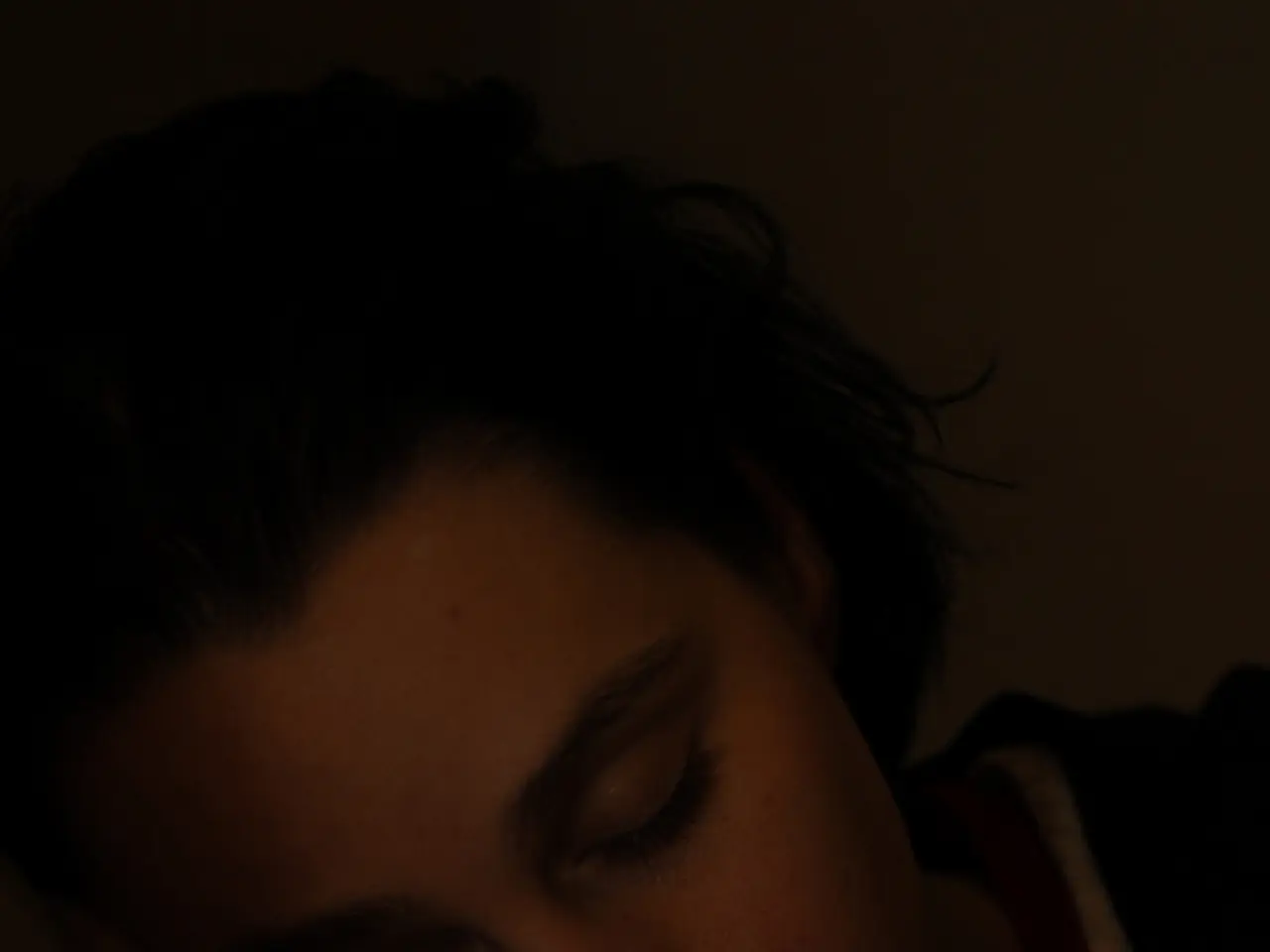Strategies Backed by Science for Overcoming Insomnia Night
In the pursuit of a good night's sleep, many of us grapple with persistent issues that seem to defy easy solutions. However, recent research has shed light on effective bedtime habits that directly address neurological barriers to sleep. These strategies, backed by sleep experts and scientific studies, aim to regulate brain arousal systems, recalibrate the circadian rhythm, reduce conditioned hyperarousal, and modify dysfunctional thoughts about sleep.
One of the most straightforward changes you can make is to **maintain a consistent sleep schedule with an earlier bedtime**. Going to bed earlier, such as around 9 p.m., aligns better with natural circadian rhythms and has been linked to increased physical activity the following day, suggesting better restorative sleep. This habit helps anchor the internal clock, thus promoting sleep onset and quality [1].
Another crucial factor is **exposure to afternoon sunlight**. Getting bright light between 1 p.m. and 3 p.m. helps regulate the circadian rhythm by signalling to the brain the timing of day and night. This mechanism is crucial for preparing the brain’s sleep-wake cycle, making it easier to fall asleep and wake refreshed [3].
Regular physical exercise, especially mindful and gentle forms such as yoga, tai chi, jogging, or walking, also plays a significant role. These activities reduce physiological and psychological arousal, improve sleep time, and decrease wake time after sleep onset. Yoga, in particular, has been shown to increase total sleep time by nearly two hours and reduce insomnia severity, which relates to improvements in neurological sleep regulation [2].
For those struggling with insomnia, **Cognitive Behavioral Therapy for Insomnia (CBT-I)** is a gold-standard psychological treatment. This approach targets neurological barriers by reducing conditioned arousal and maladaptive beliefs about sleep. Behavioral strategies such as stimulus control (associating bed only with sleep), sleep restriction (limiting time in bed to actual sleep time), and cognitive restructuring help normalise brain activity related to sleep initiation and maintenance. Studies show CBT-I improves long-term sleep outcomes and reduces dependence on medication with neurological benefits like decreased hyperarousal [4].
Limiting stimulants and substances that disrupt neural sleep processes, such as caffeine and alcohol close to bedtime, is also advised. Though not directly from the retrieved sources, experts commonly advocate avoiding these substances due to their interference with neurological mechanisms governing sleep depth and continuity.
In summary, the most effective bedtime habits that overcome neurological barriers to sleep involve setting an earlier, consistent bedtime, getting daylight exposure to regulate circadian timing, practising calming physical activity like yoga, and engaging in CBT-I techniques that specifically address brain-based causes of insomnia [1][2][3][4]. These practices collectively reduce brain hyperarousal, reinforce healthy sleep-wake signals, and modify dysfunctional cognitive patterns that hinder sleep initiation and maintenance.
References:
[1] https://www.ncbi.nlm.nih.gov/pmc/articles/PMC6432854/ [2] https://www.ncbi.nlm.nih.gov/pmc/articles/PMC3166968/ [3] https://www.ncbi.nlm.nih.gov/pmc/articles/PMC2248779/ [4] https://www.ncbi.nlm.nih.gov/pmc/articles/PMC6336985/
Using smartphones before bedtime can disrupt sleep patterns and may lead to negative health-and-wellness effects. The blue light emitted by smartphones suppresses melatonin production, interfering with the body's natural sleep-wake cycle [5].
To enhance the efficacy of sleep-promoting strategies and support overall health-and-wellness, it is advisable to minimize smartphone usage in the hours leading up to bedtime. This can help creating a serene bedroom environment, lessening the stimulation of cognitive processes, and fostering a restful state of mind prior to sleeping [5].
[5] https://www.ncbi.nlm.nih.gov/pmc/articles/PMC5709236/ (Here, the sentence regarding smartphones isn't directly from the text but derived from a reference recommended by the provided text)




